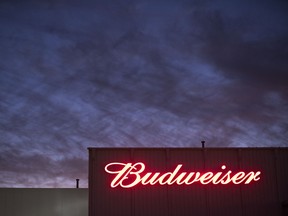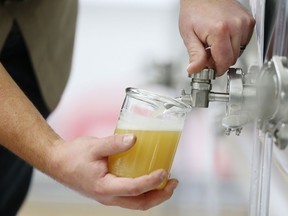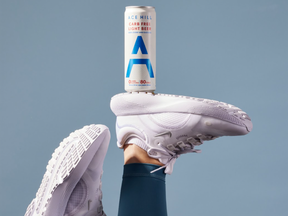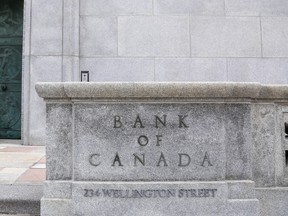Move part of broader push in industry to claw back market share from seltzers, canned cocktails luring drinkers away
Article content
Ben Toffelmire invited friends over to his apartment one night in late 2019. Around his dining room table, he poured unmarked beer bottles into red cups and watched his guests faces as they took sips.
Advertisement 2
Article content
At the time, Toffelmire was 27, just months into a big job at Toronto craft brewery Ace Hill, and he needed some feedback on his latest endeavour: a carb-free beer, developed in a 10-gallon lobster pot on his stovetop.
The focus group he’d assembled that evening was a handful of old friends — the sort who weren’t squeamish about telling each other hard truths, be it about someone’s toxic relationship or their “bad BO,” as Toffelmire put it. On that first batch, his friends complained of a strange spiciness. Toffelmire remembers some of them widening their eyes.
The main takeaway from the evening was: “Back to the drawing board, Ben.”
Two and a half years later, Toffelmire, the amateur brewer and vice-president of operations at the Ace Beverage Group, thinks he’s found the formula. The company — which owns the Ace Hill beer brand and the Cottage Springs Beverage Co. line of pre-mixed vodka cocktails — launched Ace Hill Carb-Free in Ontario this month, one of the few beers on the market with zero carbohydrates, four per cent alcohol and 80 calories.
Advertisement 3
Article content
The move is part of a broader push in the brewing industry to claw back market share from the seltzers and canned cocktails that have been luring drinkers away from beer.
Earlier this year, the multinational brewing giant Anheuser-Busch InBev SA/NV launched its own carb-free product in the United States, called Bud Light Next, for drinkers with “highly active and on-the-go lifestyles” who want the taste of a traditional lager, but with the improved nutrition stats and “sessionability” of a seltzer, the company said.

Anheuser-Busch said it took the company almost 10 years to develop the product, which has 80 calories and zero carbs and sugars, compared with regular Bud Light’s 110 calories and 6.6 grams of carbs. But Ace Hill won’t have to worry about competition from the Belgium-based beer behemoth because Bud Light Next isn’t available in Canada. Bud Light spokesperson Tamar Nersesian said the Canadian office is currently monitoring how the product performs in the United States.
Advertisement 4
Article content
Why bother?
The dawn of carb-free beer represents a technological advancement in the brewing industry’s understanding of yeast, according to Dale Wood, a chemistry professor who specializes in brewing science at Bishop’s University in Sherbrooke, Que.
“I guess Big Beer has been trying to remove the beer from beer for decades, and they seem to get closer and closer to their goal,” Wood said. “If you actually look at what the calorie sources are in beer, the carbohydrates are a just a very small portion of it. The alcohol is actually more significant. So you’re never going to get a calorie-free beer.”
It does represent a truly significant step. The only question I have is why?
Dale Wood
In beer brewing, yeast eats the sugars in the malt and converts them to alcohol. In the traditional process, the yeast never manages to consume all the sugar. So the basic theory behind carb-free beer is that, with the right kind of yeast and just enough time and heat, the brewer could break up the long chains of sugars into more digestible bits so the yeast could essentially eat all of it without producing any unintended flavours in the process.
Advertisement 5
Article content
“What they’ve done is not something that is easy to do,” Wood said. “It does represent a truly significant step. The only question I have is why?”
One reason is that beer, long the king of alcohol consumption in Canada, has been steadily losing ground to wine, spirits and now seltzers, coolers and pre-mixed cocktails — known in the industry as the “ready-to-drink” or RTD category. The trend became so pronounced that in January 2020, one of the beer industry’s biggest names, Molson Coors Brewing Co., changed its name to Molson Coors Beverage, reflecting the importance of the company’s growing portfolio of seltzers and CBD-infused drinks.

That category has been growing faster than any other beverage since Statistics Canada started tracking alcohol sales in 1949. In a February report, the agency said sales of ciders and RTD beverages increased more than 40 per cent year over year to $1.8 billion in the fiscal year ended March 31, 2021. That represented about seven per cent of all alcohol sales. Beer, on the other hand, dropped to 36 per cent of all sales, down more than two per cent from the previous year, and well below levels two decades ago, when beer represented almost half of all alcohol sales.
Advertisement 6
Article content
In the two years that Toffelmire has been fiddling with carb-free beer, Ace Beverage has transformed from a Toronto craft brewery into a national beverage outfit focused on the “better-for-you” or “guilt-reduction” style of drinking.
In 2020, Ace acquired Iconic Brewing Company Inc., known for its Cottage Springs brand. In 2021, Ace derived 80 per cent of its $45 million in revenues from the RTD line, mostly in Ontario. The company said it forecasts revenues of about $70 million this year, and $100 million in 2023.
-

How Molson Coors is finding its way back as a ‘beverage’ company
-

Brewed awakening: There are many ways your favourite beer can turn foul
-

No need to panic, but beer makers can’t get enough cans
-

Are we really … drinking less? Or why White Claw’s arrival means more bad news for brewers
Advertisement 7
Article content
Toffelmire’s boss, Ace co-founder and CEO Mike Wagman, said it’s a lot easier to grow in the RTD space than the saturated micro-brewery game.
“The beer space became so overcrowded,” he said. On the other hand, his line of Cottage Springs vodka cocktails grew 70 per cent in 2021 compared to 2020.
“We started in craft beer but at this point we’re meaningfully bigger than any Ontario craft beer company,” he said.
‘I can drink beer again’
Wagman expects Ace’s carb-free product will become one of the top sellers in its beer portfolio, boasting that it could stand up in a blind taste test to any other light beer on the market.
“We consider it to be a breakthrough,” Wagman said. “It’s kind of like, ‘Oh, I can drink beer again.’”
Advertisement 8
Article content

The Ace team in Toronto believed they were alone with that breakthrough until this winter, when Anheuser-Busch announced Bud Light Next. After it launched, the Ace team brought up samples from the United States. Wagman said they were somewhat pleased that Anheuser-Busch beat them to the carb-free punch because Ace Hill would also benefit from the multinational major marketing budget. “They’re going to help create this category. We don’t mind that. They ran a Superbowl ad.”
But because it was first, Bud Light Next also had to be good. If not, it risked turning customers off the concept altogether. And, according to Wagman, it failed. “What they ended up developing was much more like a beer-flavoured seltzer. They call it a beer but it’s extremely light,” he said, in what could be a preview of a coming battle for the light-but-technically-still-beer title. “Our standard was: This has to be a beer.”
• Email: jedmiston@postmedia.com | Twitter: jakeedmiston
Advertisement
Ontario’s Ace Hill takes on Bud Light to become king of carb-free beer
2022-04-26 16:36:34






